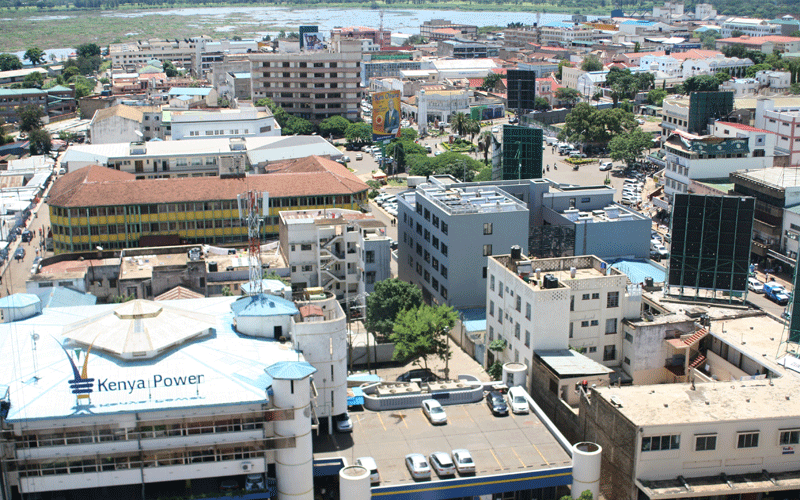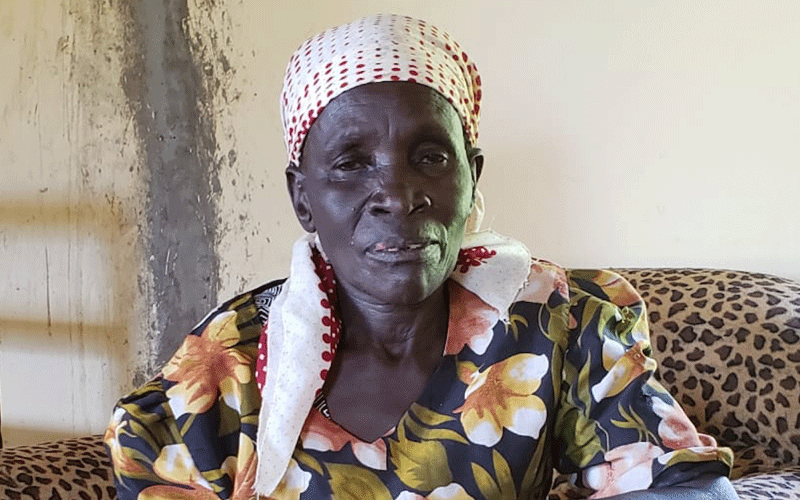Kisumu real estate developers decry dip in revenues

Developers in Kisumu are experiencing cashflow challenges as a result of the economic meltdown caused by Covid-19 outbreak. Some have sunk in debt due to low house occupancy and rent payment hitches.
The real estate industry in Kisumu county continues to suffer from the accelerating economic effects of the coronavirus pandemic resulting in a sharp drop in demand for rental space.
Developers are now faced with low occupancy and rent payment challenges occasioned by ripple effects of the pandemic on the local economy.
Daniel Ogutu, a developer in Kisumu town says the massive effect of the virus has thrown developers, especially those who took loans to develop, in crisis over the repayment plans.
Ogutu says the property investors are feeling the heat of Covid-19 scourge with their hopes of immediate possible economic turnaround dented by the surging virus positive cases in the country.
Boma has established that the lakeside town is nearly registering an oversupply in residential houses amidst the prolonged Covid-19 upshots even as developers struggle with low demand for rental spaces.
The entrepreneurs are jostling for tenancy even as the economic effects of Covid-19 impact of the locals’ livelihoods.
Ogutu says that many tenants are either not able to pay their rent on time or in full because of the economic shakeup brought about by movement restrictions and job losses due to the outbreak.
Rent arrears
Notably, others have pulled out of their dwellings for being unable to afford rent in the wake of the harsh economic times, leaving several rental spaces vacant.
“Many people lost jobs while others have had their income slashed hence they cannot meet tenancy obligations.
Therefore, we are experiencing a lot of friction between tenants and landlords,” says Benard Odhiambo, Bedvin Investments Managing Partner.
Due to the decreased revenues, Ogutu says that developers are not able to get the full monthly rental payment as the majority of their tenants are either seeking temporary rent relief or waivers, citing harsh financial times.
Consequently, because of reduced rental income the landlords are struggling to repay bank loans that financed their projects.
“Most of us are in arrears because the money generated from rental income is not enough to service the loans we took.
We are contemplating looking for other financial avenues to bridge the deficit,” says Ogutu.
He observes that based on the current economic status of the country, it may take a longer time before developers can fully repay the loans.
A recent survey report by Kenya National Bureau of Statistics (KNBS) indicates that 31.6 per cent of Kenyans were able to meet their rent obligations in May on time as a further 23 per cent did not pay rent in full as the pandemic financial impact accelerated.
The report showed that respondents attributed reduced income as the reason behind their monthly rent arrears.
The study further revealed that only 0.7 per cent of households in rented dwellings received full rent waivers while six per cent of landlords issued temporary relief.
“Most of the households that were unable to pay rent for May attributed it to reduced earnings (61 per cent),” read the report in part.
This state of affairs has seen some landlords allow tenants defer payments while some have reduced rents as others insist on full and timely payments due to their own loan obligations.
Diversification
Odhiambo says that the uptake of residential and commercial space has radically slowed as a result of reduction in purchasing power down due to the impact of the deadly virus on businesses and the overall economy.
A significant proportion of rental space is also left unoccupied after some mall retailers were thrown out of business by the resulting coronavirus economic ripple effects while others closed shop following the government directives that banned social gatherings.
“There is total mismatch in the sector. Property letting is largely affected to the extent that we are witnessing instances where majority of developers are stuck with their properties because of slowdown in demand,” he says.
The real estate agent observes that with the Covid-19 economic meltdown property prices have fallen considerably in Kisumu, a situation he considers an opportunity prospective investors can capitalise on to put up diversified projects.
“Discerning investors can take advantage of the low prices to increase their real estate portfolios.
They can opt for low cost houses whose demand is at its highest, especially for stand alone (detached) houses as people are moving away from multiple units to avoid crowding and increased risk of contacting Covid-19, ” explains Odhiambo.
Some of the measures recommended by the developers to cushion the industry include the government waiving rental income tax during the outbreak period.
Similarly, Ogutu proposes the creation of stimulus fund to revitalise the industry’s growth and cushion property owners.
The fund could have a direct bearing on reviving the sector after undergoing intense shakeup.
“Things have worsened in the sector more than we have experienced before because of an unstable economy. Let the government provide stop gap recovery measures that will spur its growth,” says Ogutu.
The developers are hoping that the recent easing of Covid-19 containment measures sees the country witness an increase in economic activity hence boost circulation of money and improve rent payment.















